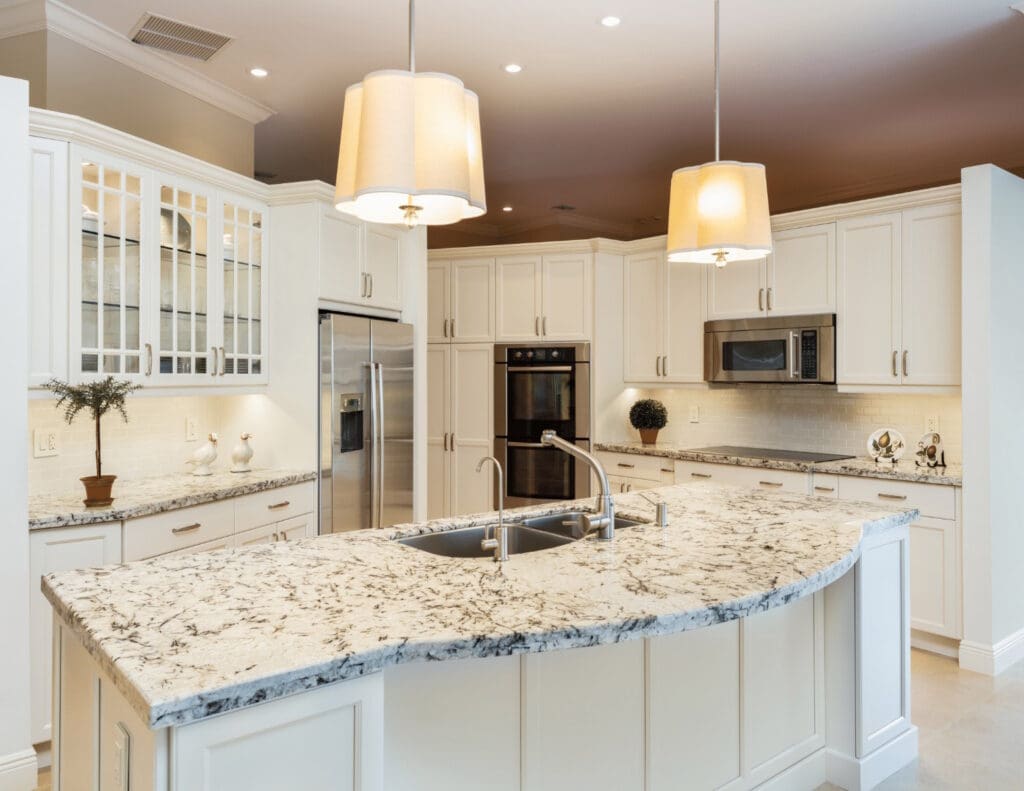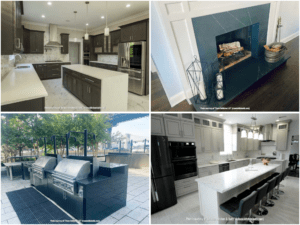How Often Should You Seal Granite and What to Do with Unsealed Surfaces

Granite countertops are durable, stylish, and commonly used in kitchen interiors. However, even the strongest stone requires proper care. One of the key aspects is sealing. Questions often arise: do granite counters need to be sealed, and how often should it be done? It's also important to understand what to do with unsealed granite and what risks may come with it in the long run. The answers to these questions will help keep your surface in good condition for years to come.
Do You Need to Seal Granite?
Yes, sealing granite is necessary. Natural stone has a porous structure and, without protection, easily absorbs water, grease, and stains. This is especially true for kitchen work surfaces. Without sealant, a countertop loses its appearance more quickly and becomes vulnerable to damage. That’s why sealing kitchen countertops is not just a recommendation, but a basic maintenance step.
How Often Does Granite Need to Be Sealed?
Typically, granite should be sealed once every 1–2 years. The frequency depends on the specific type of stone and how it’s used. To determine how often granite countertops need to be sealed, you can run a simple test: place a few drops of water on a dry surface. If the water absorbs quickly and leaves a dark spot, the sealant is no longer working and it’s time to reapply. The more heavily a surface is used, the more often it will need treatment.
Do You Need to Reseal Granite Countertops?
Yes, the sealant needs to be reapplied because its protective properties wear off over time. Even with careful use, the layer eventually degrades—especially in high-traffic areas. If the surface starts to look dull, stains more easily, or absorbs water, it’s time for resealing. The timing may vary, so it’s important to understand how often you should reseal granite countertops.
How Often Should You Reseal Granite Countertops?
In most cases, sealant is reapplied every 1–2 years. If the countertop sees heavy use—such as daily cooking, frequent food prep, or constant contact with water—the protective layer may wear off faster. In lower-use areas, sealing may be needed less often. To identify the right moment, it helps to understand how often you have to seal granite countertops and perform regular water drop tests.
What to Do with Unsealed Granite?
If the granite surface was never sealed after installation or has lost its protection over time, it becomes more vulnerable to stains, moisture, and dirt. Such unsealed granite quickly deteriorates in appearance and may darken in areas with frequent contact with water or grease. To avoid this, the surface should be cleaned and treated with a proper sealant as soon as possible. When in doubt, it’s best to consult a professional—especially if the countertop is new or high-end.
Do You Need to Treat Granite Countertops?
Yes, especially if the countertop is used daily. Treatment involves not just sealing but also regularly checking the condition of the surface. Sometimes the stone may look protected, but still absorb moisture. That’s why caring for granite isn’t a one-time action—it’s an ongoing routine of inspection, testing, timely sealing, and proper cleaning. This approach helps avoid situations that might require urgent repair or even replacement.
Conclusion
Granite countertops require regular protection. Understanding whether you have to seal granite and how often you have to seal granite countertops helps preserve the stone’s strength, appearance, and hygiene. If you discover unsealed granite, don’t postpone sealing—taking action promptly prevents damage and extends the life of the surface.
Read more:
- Do Granite Countertops Need Sealing? Busting Myths and Providing a Clear Answer.
- How to Care for Granite Countertops: A Complete Guide to Maintenance and Upkeep.
- Granite Countertop Care: Common Mistakes, Expert Tips, and Top Cleaning Products
- Do specialty products protect marble and granite countertops from dirt or not?











